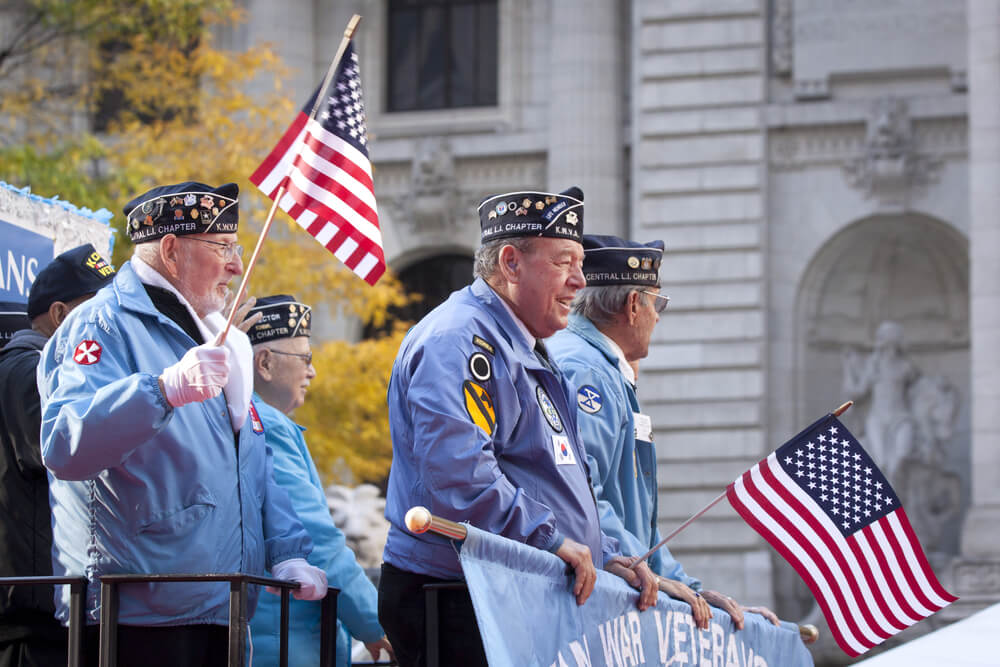A strong bond forms with fellow military members during service. When it’s time to separate or retire, that comradery easily translates outside the military and as a result, groups and organizations are formed to bring together that brotherhood and sisterhood again. Whether you are still are serving, transitioning soon or a long-time vet, it’s never too early or late to research the right veterans group that fits your particular needs.
From branch oriented to conflict focused and everything in between, here’s a quick roundup of organizations aimed to bring together veterans and their family members:
Air Force Association (AFA). Supporting airmen and women while in uniform and out, AFA provides unique resources to help promote professional development and offers programs and initiatives that assist the service member and their families. The nonprofit has local chapters from coast to coast.
American Ex-Prisoners of War (AXPOW). Founded in 1942, AXPOW’s membership consists of those that have been prisoners of war and their family members, including spouses, parents, children and grandchildren over 18. Today, there are stateside chapters everywhere benefiting and supporting members.
The American Legion. It is said to be the largest wartime veterans’ service organizations in the country. To join, individuals must have served honorably or are currently serving during a conflict. The American Legion organization advocates for veteran rights and offers 2.4 million of its members community support, mentorship and programs throughout their local posts.
American Veterans (AMVETS). Membership is open to those that are serving or have honorably served. American Veterans is an advocacy group that assists veterans and their family members with utilizing all appropriate resources as well as volunteering together to help serve the community.
American Women Veterans (AWV). An organization celebrating women in the armed forces welcomes all veterans, family members and supporters. AWV focuses on empowering servicewomen and preserving and promoting the contributions them through sponsorship, advocacy and campaigns.
Association of the United States Army (AUSA). AUSA was created to serve the American soldier and their family members. Anyone that has a concern of connection to the Army can join and members can benefit from a community of Army-specific resources and events. There are 119 chapters across the globe.
Disabled American Veterans (DAV). The organization’s history dates back soon after WWI and was created to offer support for injured service members. To be a member, you would have needed to serve in the armed forces during conflict, discharged or retired under honorable conditions, and lastly, have been injured as a result of military service. There are local chapters for members to meet for community support and can offer special benefits.
Iraq and Afghanistan Veterans of America (IAVA). IAVA is an open organization for all veterans, family and civilian friends with the focus to empower and encourage post- 9/11 veterans. Members benefit from monthly “VetTogethers,” one-onone support by Veteran Transition Managers and other resources and advocacy to post-9/11 veterans and their families.
Marine Corps Association (MCA). For current, honorably discharged and retired Marines and friends, the MCA brings together those that want to stay connected with all things the Corps. They also provide professional development and educational opportunities, among other benefits.
Military Officers Association of America (MOAA). Headquartered in Alexandria, Virginia with local chapters all over the United States, MOAA is a service-based organization benefiting military officers and their families in all branches of service. They offer resources and programs to assist with transition, pay and retirement benefits among others.
The Mission Continues. This charity organization connects veterans with local partners in need of assistance with community improvements like mentorship programs with at-risk youth. Anybody can join volunteer platoon, but post-9/11 veterans are able to apply for a fellowship program to help build leadership skills to hopefully bring into the civilian sector.
Navy League of the United States. Teddy Roosevelt encouraged the founding of the Navy League and since then, the organization has been advocating for sea-based service members and their families. Get involved in one of the 220 councils that are located around the globe.
Team Red, White & Blue (RWB). Through physical activity and social involvement, Team RWB connects veterans with their community to build and nurture relationships. Veteran and civilians alike join forces in local chapters and it’s easy to get involved.
Team Rubicon. Put your military skills to good use by volunteering with Team Rubicon, an organization that deploys former service members and first responders to assist in disaster relief domestically and all over the world.
Student Veterans of America. For veterans focused on higher education, Student Veterans of America provides resources and scholarships. The organization has chapters in the United States advocating and offering support and mentorship to those in need.
Veterans of Foreign Wars of the United States (VFW). The founding of VFW can trace back to 1899 and has since made its mark in the military community by advocating for veterans and their family members. VFW had a hand in creating the Veterans Administration and post 9/11 GI Bill to name a couple things. To be a member, you must have earned an overseas campaign medal, have served 30 or 60 non consecutive days in Korea, or received hostile fire or imminent danger pay.

